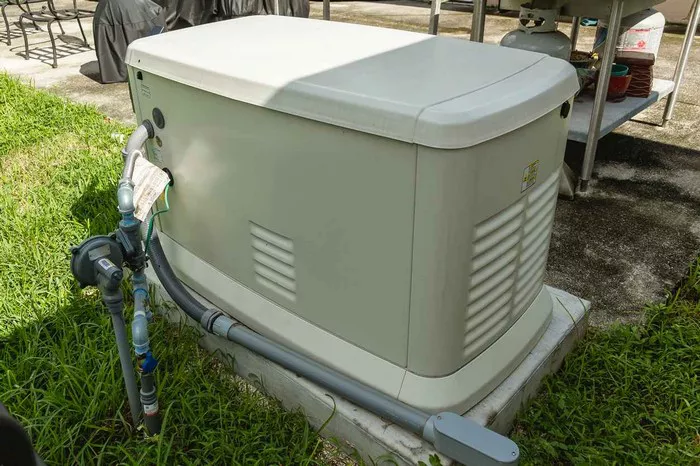Generators are vital pieces of electrical equipment and general machinery used to provide power during outages or in places without a direct electricity supply. However, using them incorrectly can pose significant risks. One common question that arises is whether it’s safe to sleep with a generator running. In this article, we will explore the potential dangers of running a generator overnight, how to use them safely, and important tips to ensure your safety when relying on generators for power.
Understanding Generators and Their Role
A generator is a machine that converts mechanical energy into electrical energy. It serves as a crucial backup power source during power failures, and it is widely used in both residential and industrial settings. Generators are generally powered by gasoline, diesel, or propane and can range from small portable models to large standby systems. They are an essential part of modern electrical equipment, providing power to everything from homes to factories.
When using a generator, the main concern is ensuring it is running in a safe environment. While they offer invaluable benefits, they can also present serious risks, especially when used inappropriately.
Why Is Sleeping with a Generator Running Dangerous?
Generators, especially those powered by gasoline or diesel, produce carbon monoxide (CO), a colorless and odorless gas that can be deadly. The risk of carbon monoxide poisoning is the primary danger when running a generator overnight, particularly if the generator is located in an enclosed or poorly ventilated area.
Carbon Monoxide Poisoning
When a generator operates, it emits exhaust gases that contain carbon monoxide. In an open outdoor environment, the gas disperses harmlessly into the air. However, when a generator is run indoors or in an enclosed space, such as a garage or basement, the carbon monoxide accumulates. This can lead to a dangerous buildup, increasing the risk of poisoning.
Symptoms of Carbon Monoxide Poisoning
Carbon monoxide poisoning can be difficult to detect at first because the symptoms mimic those of common illnesses. Some common symptoms include:
- Headaches
- Dizziness
- Nausea
- Shortness of breath
- Confusion
- Loss of consciousness
In severe cases, carbon monoxide poisoning can result in death. This is why it is extremely important not to sleep near a running generator, especially if it is inside a building.
Risk of Fire
Another significant risk of running a generator while sleeping is the potential for fire. Generators produce heat, and if they are placed near flammable materials or are not properly maintained, they could catch fire. It is vital to follow manufacturer guidelines on the proper placement and maintenance of generators to minimize the risk of fire.
Safe Practices for Using Generators
1. Place Generators Outdoors in Well-Ventilated Areas
Never place a generator inside your home, garage, or any enclosed space. Always use a generator outside, at least 20 feet away from doors, windows, or ventilation openings. This will ensure that the carbon monoxide produced by the generator can dissipate safely into the open air.
2. Use a Carbon Monoxide Detector
To further enhance safety, install a carbon monoxide detector near your generator’s operating area. This device will alert you to dangerous levels of CO in the air, giving you an early warning if the gas starts to accumulate.
3. Ensure Proper Exhaust Ventilation
Ensure that the exhaust pipe of the generator is pointed away from your home or any areas where people may be. The exhaust should never be directed towards walls or objects that could cause the gas to accumulate.
4. Never Overload the Generator
Overloading a generator can cause it to overheat, leading to potential fire hazards. Always check the manufacturer’s guidelines to understand the generator’s power limits and ensure you are not exceeding them.
5. Maintain the Generator Regularly
Regular maintenance of your generator can reduce the risk of malfunction and improve its safety. Follow the manufacturer’s instructions for oil changes, air filter cleaning, and other maintenance tasks to keep the generator running smoothly.
6. Avoid Refueling While the Generator is Running
Never refuel a generator while it is operating or still hot. Fuel spills can easily ignite, creating a fire hazard. Turn off the generator and allow it to cool down before adding more fuel.
Can You Sleep with a Generator Running?
Given the risks associated with running a generator overnight, it is generally not recommended to sleep with one running in close proximity. The main concerns are carbon monoxide poisoning and the risk of fire. While you may need to use a generator overnight during a power outage, it is crucial to ensure it is placed in a safe, well-ventilated area and monitored throughout the night.
If you need to sleep while using a generator, it is important to:
- Ensure the generator is far from living spaces.
- Use carbon monoxide detectors to alert you if the levels are rising.
- Maintain proper ventilation around the generator.
In short, sleeping with a generator running indoors or in an unsafe environment is highly dangerous and should be avoided.
Conclusion
Generators are powerful and valuable machines used for a variety of purposes, especially during power outages. However, they pose significant risks if not used properly, particularly when it comes to carbon monoxide poisoning and fire hazards. The best practice is never to sleep near a generator while it is running, particularly if it is indoors or in a poorly ventilated area. Always prioritize safety by ensuring your generator is placed in an open, outdoor space and follow the recommended safety guidelines to avoid potential hazards.
By understanding the dangers and using generators correctly, you can enjoy the benefits of these machines without compromising your safety. Remember, safety should always come first when working with electrical equipment, general machinery, and generators.
Related topics:

